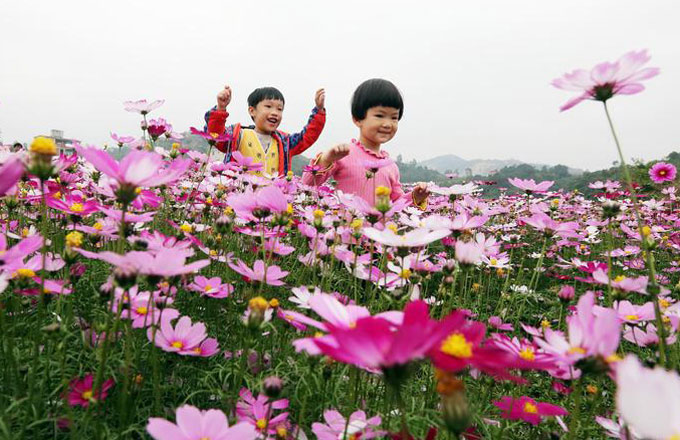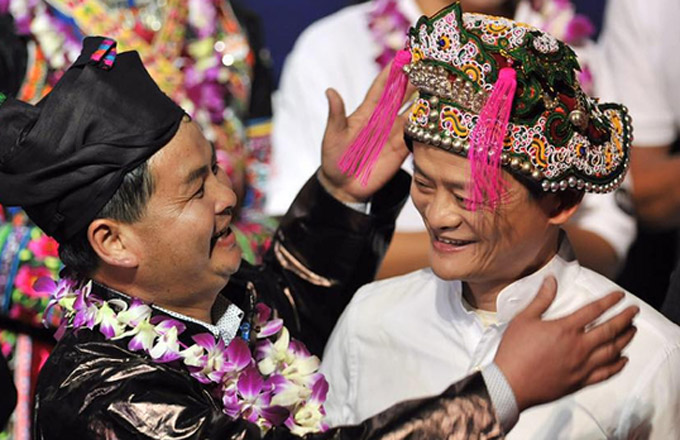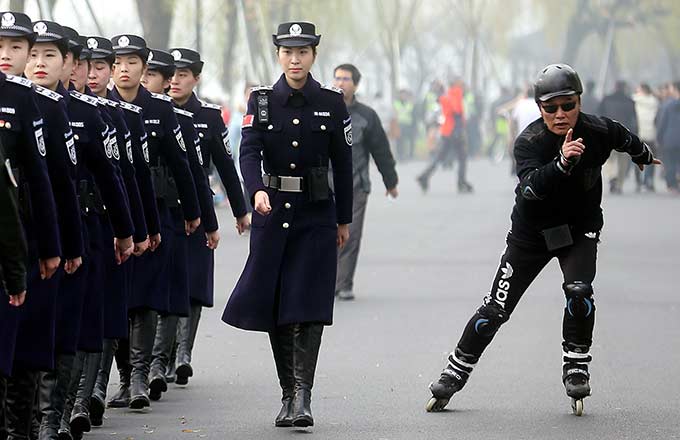Hebei takes another swipe at pollution
Hebei province has set a new goal to reduce average concentration of PM2.5 — fine particulate matter that harms human health — for the coming year by at least 6 percent from last year, according to its governor.
“Controlling air pollution is a difficult task for Hebei, but we must continue to take concrete measures with the resolve to bring back clean air and blue sky,” Governor Zhang Qingwei said on Sunday during his annual Government Work Report address at the opening ceremony of 2017 Hebei Provincial People’s Congress.
The province, hit hardest by smog, set the same goal last year and successfully reduced the average concentration of PM2.5 by 9.1 percent, to about 70 micrograms per cubic meter, according to the Hebei Environmental Protection Bureau.
This year, Hebei’s efforts on air pollution prevention — such as restricting activities at power plants and factories, and reducing emissions from automobiles — will continue, according to the report.
However, most of cities in Hebei have been shrouded by thick smog repeatedly since the beginning of winter, with blue sky a rare treat for residents.
Even on Sunday, deputies at this year’s session found some difficulty getting to the conference venue because of poor visibility due to smog.
Many members of the Hebei Provincial Committee of the Chinese People’s Political Consultative Conference, whose meetings opened on Saturday, made proposals about how to improve air quality.
Guo Yongjun, a member from Qinhuangdao, said the province should further enhance its efforts on fighting smog scientifically, and different cities and counties should find their own solutions for diverse air problems, rather than taking sweeping emergency approaches.
Pollution created by the burning of coal for heating, one of the main sources of smog during cold weather, should be curbed through environmentally friendly facilities in factories, he said.
Wang Yuanlin of Chengde, another member of the conference, wrote in his proposal that coal should be gradually replaced by renewable energy.
The heavy air pollution has greatly affected local people’s lives, and most wear face masks during outdoor activities — and some of them are looking for work or buying apartments in southern cities.
“I am thinking about finding a job in a southern city where I can breathe clean air and see blue sky every day,” said Cao Mei, a female office worker in Shijiazhuang, Hebei’s capital, which suffered its worst air quality this year.
Cao said she actually didn’t want to leave because it’s her hometown, and her family lives there, but health and quality of life also matters.























